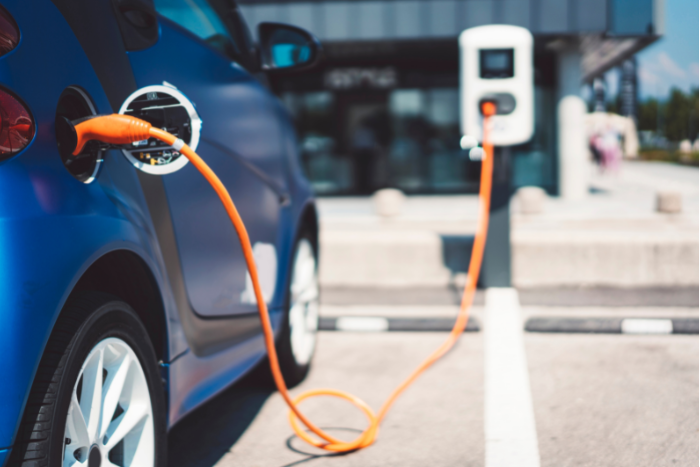Following the allegations that many electric two-wheeler makers have wrongfully claimed subsidies under its flagship FAME II (Faster Adoption and Manufacturing of Electric Vehicles) initiative, the government is undertaking measures to tighten scrutiny prior to disbursal of incentives under the ₹25,938-crore Production Linked Incentive (PLI) scheme for the automobile and auto component sectors. The Economic Times reported that to qualify for incentives, businesses must add domestic worth of at least 50% to the invoiced bill of materials. The Ministry of Heavy Industries (MHI), which is responsible for implementing the PLI scheme for the automotive sector, has also established standards for manufacturers to follow. Individual consultations with each chosen candidate have taken place to go over the standard operating procedures (SOPs). The government allocated ₹604 crore in the budget earlier this year for disbursal under PLI auto and auto parts. The incentive amount will increase as the plan expands over the next four to five years.
India reports 21.7 lakh registered EVs, over 10,000 public charging stations
According to Minister of State (MoS) for Heavy Industries Krishan Pal Gurjar, there are 21.7 Lakh registered electric vehicles in India. As per the information gathered up until March 6, Uttar Pradesh topped the rankings with more than 4.65 lakh EV registrations, followed by Maharashtra with 2.26 lakh. Bengaluru came in fourth with 1.83 lakh registrations, while Delhi stood third with 2.03 lakh. The information also showed that Delhi, with 1,845, had the most public charging stations nationwide. Maharashtra has 660 EV charging outlets, compared to 704 in Karnataka. India has 6,586 public charging outlets spread out over its entire landmass. Another report by the Council on Energy, Environment and Water (CEEW) however showed that Delhi had the highest EV penetration in India at 8.3% between April 2021 and September 2022, the Times of India reported. The study listed Assam (5.91%) and Karnataka (4.85%) after Delhi in EV penetration. However, Uttar Pradesh topped the list in terms of total number of EVs sold, with 1,65,338 EVs with a penetration of 3.91%, the study added.
Germany objects to EU’s ban on sale of new CO2-emitting cars
The European Union’s legislation to prohibit the sale of new CO2-emitting cars beginning in 2035 is being blocked by Germany to shield its top industry from the difficult transition of getting rid of cars with internal combustion engines. The legislation that would ban the sale of new CO2-emitting cars and vans starting in 2035 and mandate the use of electric vehicles instead was approved by the European Parliament and member states of the EU Council. EU ministers were supposed to grant their final approval, but Germany objected. This is because one of the three parties in Germany’s governing coalition, the Free Democratic Party (FDP), wants the European Commission to include a provision in the law allowing the sale of vehicles with combustion engines as long as they use so-called e-fuels. These synthetic fuels are climate neutral, but require a lot more energy to produce than charging an electric vehicle.
Biden, EU president to negotiate on EV subsidies
US president Joe Biden and European Commission president Ursula von der Leyen agreed to negotiate the use of European minerals critical in the production of batteries for EVs that qualify for US tax credits. The two sides consented to begin discussions aimed at resolving disagreements between the US and the EU regarding the electric vehicle tax credits, which are part of Biden’s clean energy legislation worth about $375 billion, and include incentives for the purchase of domestically manufactured vehicles. Critical raw materials sourced from the EU will be handled as if they were sourced from the US if the agreement is approved.
Xi warns of oversight risk to EV battery industry in China
According to the Economic Times, Chinese president Xi Jinping said he was “both pleased and concerned” about the world’s largest battery maker CATL’s electric vehicle battery dominance. To prevent the current boom from crashing in an overcapacity bust, industry executives and regulators were warned to be prepared to slow down expansion. Last month, CATL joined hands with Ford to build a new factory in Michigan to produce lithium iron phosphate batteries for its electric vehicles. Xi responded to a presentation by the CATL team on the sidelines of China’s annual parliament and said that regulation had a place to guarantee that developing industries like battery production proceeded in a steady manner to avoid “a boom and a headlong rush that would dissipate in the end”.
About The Author
You may also like
New report shows ways to build an efficient e-bus ecosystem in India
Corporate watchdog accuses Toyota of misleading marketing, greenwashing
Electrifying India’s Roads: Financing EVs – Challenges, Progress and the Road Ahead
Five lithium and cobalt mines identified in overseas exploration
India approves $7 billion plan for 10,000 electric buses in 169 cities in next 10 years


